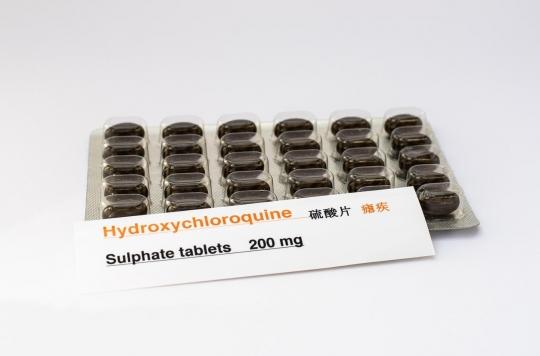The WHO has decided to suspend all studies conducted with hydroxychloroquine and chloroquine. A decision which comes after the publication of work which underlines the risk of death associated with this treatment and of which the fervent defender of chloroquine, Professor Didier Raoult had strongly criticized the conclusions.

- WHO announces the “temporary” suspension of studies on chloroquine of which it is a partner
- A recent study highlights the ineffectiveness of this treatment and the risk of death associated with it
- In France, the Minister of Health has asked that the rules for prescribing this treatment be reviewed
It is a study that may have sounded the end of the debate on the effectiveness of the use of chloroquine in the treatment of Covid-19. After the decision of the Minister of Health, Olivier Véran, to seize the medical authorities so that they change the rules for prescribing this treatment in the care of Covid patients, the study published three days ago in The Lancet provoked a strong reaction from the WHO (World Health Organization) on Monday. The latter announced Monday evening the temporary suspension of the clinical trials it was conducting in several countries.
The Lancet study which underlined the ineffectiveness of this treatment in hospitalized patients and the significant risk of death which was associated with its use is the last published on this drug around which the controversy, born of the declarations and tests of Professor Didier Raoult in Marseille quickly settled in from the start of the epidemic. The Marseille doctor, a great defender of the usefulness of hydroxychloroquine in the treatment of patients with Covid-19, also replied to this study by calling it “messy”.
A precautionary measure
“I don’t know if hydroxychloroquine kills, but here it saves a lot of people,” Professor Raoult said in a video posted on May 25 on the YouTube account of his institute, the IHU Méditerranée Infection. He claims to be able to rely on the analysis of 10,000 electrocardiograms carried out in his establishment.
The WHO explains that it has taken the decision to “temporarily” suspend the clinical trials in progress on hydroxychloroquine – that is to say trials including the prescription of the treatment to certain patients drawn by lot – as a precautionary measure. The work published in the Lancet, a large pharmacoepidemiological study involving a total of 96,000 patients had demonstrated an increased risk of death and cardiac arrhythmia with treatments linked to hydroxychloroquine and chloroquine.
Chloroquine is a drug used for a long time in the treatment and prevention of malaria but also in the management of rheumatoid arthritis and certain forms of lupus. Hydroxychloroquine is a derivative of chloroquine used in the treatment of autoimmune diseases.

.

















